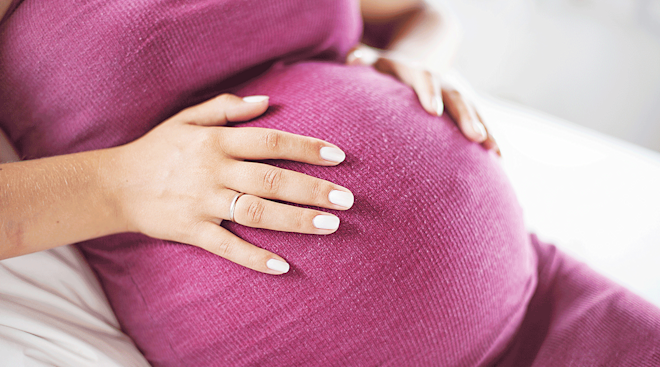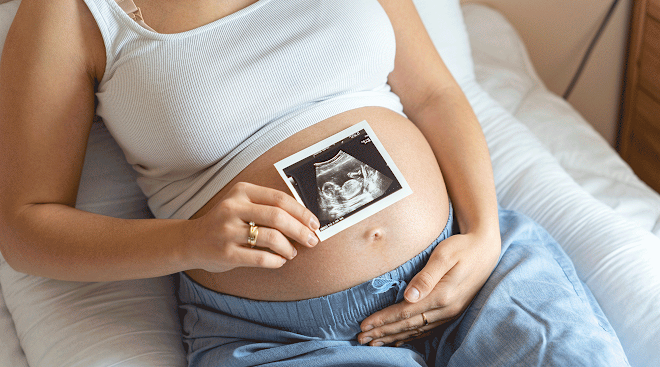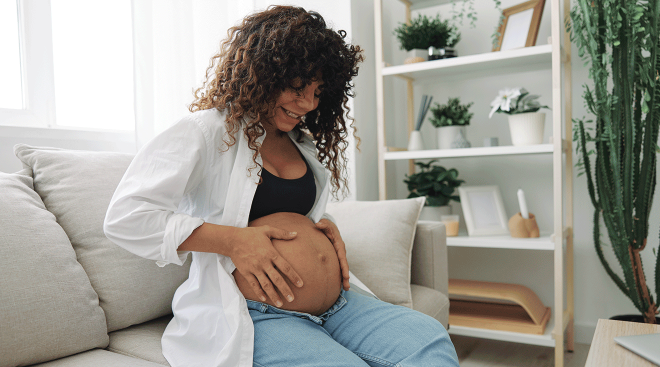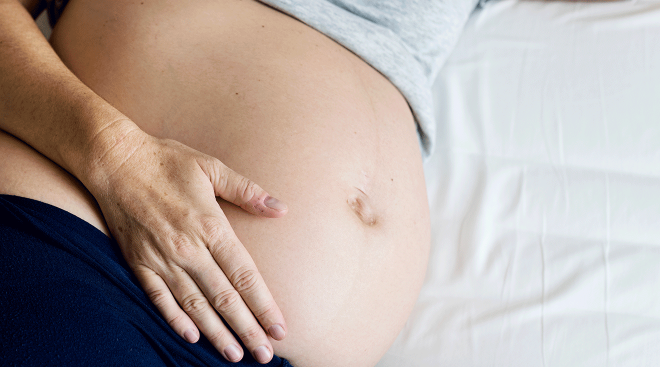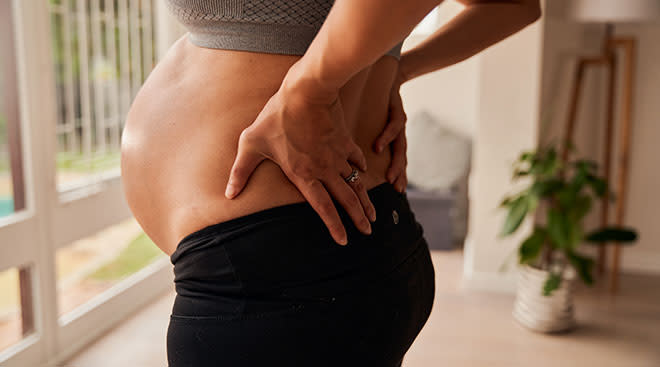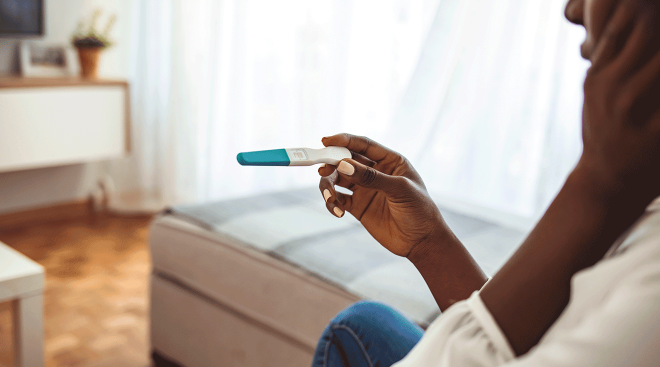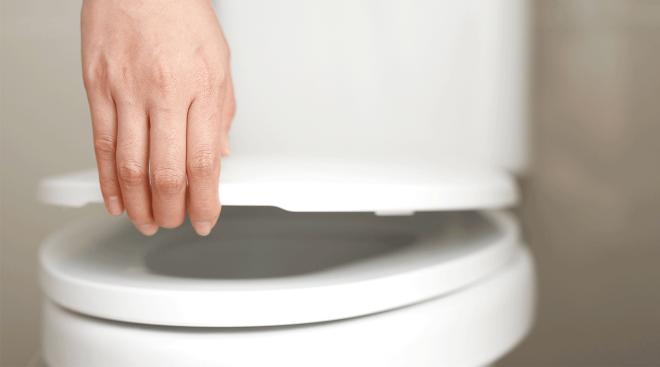10 Surprising Pregnancy Symptoms No One Warned You About
Some pregnancy symptoms you just expect, right? The morning sickness, the wacky food cravings, the big swollen ankles. But then there are the symptoms that take you by surprise—the ones that cute celebrities with their even cuter baby bumps may not talk about during their red carpet interviews. We’ll talk you through some of the things no one else will warn you about and why they happen in pregnancy.
There’s a good chance you may experience an uptick in facial hair growth. “You can blame this on an increase in testosterone from your placenta and ovaries,” says Heather Bartos, MD, an ob-gyn and certified lactation consultant in Cross Roads, Texas. Hair may also grow on your belly and around your nipples, a pattern you typically see in males. All this stops when your hormones recalibrate after delivery.
Constipation plagues many moms-to-be throughout their pregnancies, starting as early as week 5. “This happens because the hormone progesterone surges in the beginning of pregnancy, which slows down the process of stool moving through your bowel,” Bartos explains. This slowed movement ups the amount of water your colon absorbs from your stool, making your poops harder and more difficult to pass. (Fun, right?) To help get everything slip-sliding a little better, drink lots of water and prune juice. But willy-nilly upping your fiber intake is not the best move. “Fiber may just bulk up your stool and not help it move,” says Bartos. Check with your doctor for helpful medications instead.
Another effect of rising progesterone levels: Your blood vessels relax, which then increases blood flow to your vaginal area, says Mary Jane Minkin, MD, a clinical professor of obstetrics, gynecology and reproductive sciences at the Yale School of Medicine in New Haven. “By the end of the second trimester your fluid volume has increased about 50 percent over baseline,” she says, leading to a swollen vagina, which may leave you feeling tender or sore. To ease the discomfort and puffiness, try applying a cool pack.
All that blood flow coursing through your vaginal area increases your chance of getting vulvar varicosities—aka varicose veins on the vulva—which may leave you with a weird sensation of fullness, swelling and discomfort. Sometimes there’s a bulge too. Minkin notes that, luckily, compression support garments made just for this purpose can ease discomfort by supporting the lower abdomen and back.
When it comes to the business of being pregnant, burps and farts are common. The pregnancy hormones progesterone and relaxin encourage the muscle tissue to relax—including the muscles around your GI tract. As a result, “food moves through your system more slowly, causing gas and bloating,” says Bartos. Our advice: Embrace it! Or blame it on the dog. “Staying away from carbonated beverages and trading some of your go-to cruciferous vegetables for less-gassy options can help,” says Bartos.
Don’t freak out—this isn’t a super-common side effect of pregnancy and it doesn’t signal that anything is wrong. Chalk it up to yet another inconvenience of progesterone, which causes your body to produce more saliva than normal during pregnancy. In the case of ptyalism (a rare disorder), the amounts are so extreme that some women end up constantly needing to spit, says Bartos. Ptyalism most often occurs in moms-to-be who’re dealing with extreme morning sickness called hyperemesis gravidarum. This might be the body’s way to soothe itself, given that some researchers think that excess saliva may help your stomach, says Bartos. Also, if you feel nauseous, you may be trying to swallow less, which lets saliva build in your mouth. To help combat the drool, brush your teeth several times a day, regularly swish minty mouthwash and chew on sugar-free gum.
Bust out the pantyliners! Your body is making a lot more estrogen and progesterone than usual, which means more blood flow to your vaginal area and an uptick in cervical and vaginal secretions—creating a liquidy, whitish (and sometimes yellow-greenish) discharge known as leukorrhea. “It can be very annoying,” says Bartos, but it isn’t harmful. Call your doctor, though, if the discharge smells fishy or causes profuse vaginal irritation, since those are possible signs of an infection.
Babies do more than just kick your belly—they’ll eventually kick you in the vagina too, as they reposition themselves in the uterus. Early Braxton Hicks contractions is also a possibility. As your pregnancy chugs along, your growing uterus puts increasingly more pressure on your pelvic floor—and it can feel like there’s a bowling ball bumping against your vagina. Whatever the cause, “lightning crotch” pretty much happens to all moms-to-be and it isn’t necessarily a reason for concern.
The baby in your belly is currently using your internal organs as a pile of pillows. This puts the squeeze on your bladder, making it more likely for you to spring a leak. Exacerbating matters is the progesterone surge during pregnancy. “As a smooth muscle relaxer, it impacts the muscles surrounding the urethra and can cause three to four trips to the bathroom in the middle of the night,” says Bartos. While pregnancy bladder leakage is temporary, postpartum incontinence can last up to a year. “Your poor bladder has been taking it for 40 weeks!” says Bartos, so it understandably needs time to heal. “Do your kegels and talk to your healthcare provider at your postpartum visit about how to manage it.”
Your pregnant body is essentially a furnace. Regular, all-day, sticky hotness is a thing, but (surprise!) so are night sweats. “You’re generating so much more heat right now and moving it to the surface,” says Minkin. “Again, we can partially blame the hormones, which actually do raise core body temperature.” In fact, a 2013 University of Pittsburgh School of Medicine study found that 35 percent of women experienced night sweats during pregnancy, similar to what’s felt during menopause. If it’s just plain annoying, try to drink more fluids, take cool showers and wear light, layered clothes. But if your pregnancy sweats are truly uncomfortable—or if you’ve got a fever or rapid heartbeat—call your doctor or midwife.
Please note: The Bump and the materials and information it contains are not intended to, and do not constitute, medical or other health advice or diagnosis and should not be used as such. You should always consult with a qualified physician or health professional about your specific circumstances.
Plus, more from The Bump:
Heather Bartos, MD, FACOG, is an ob-gyn as well as the founder and medical director of Be. Women’s Health and Wellness in Cross Roads, Texas. She is also a certified lactation consultant and pilates instructor.
Mary Jane Minkin, MD, is an ob-gyn at Yale New Haven Health in New Haven, Connecticut and has been in practice for more than 40 years. She also serves as a clinical professor of obstetrics and gynecology and reproductive sciences at Yale University School of Medicine.
Ferility and Sterility, Prospective Evaluation of Hot Flashes during Pregnancy and Postpartum, September 2013
Learn how we ensure the accuracy of our content through our editorial and medical review process.
Navigate forward to interact with the calendar and select a date. Press the question mark key to get the keyboard shortcuts for changing dates.

































